Mastering Invoice Approval Policies in OpenEnvoy: Managing Multiple Approval Policies with Ease
In any organization, invoice management and approvals are a critical, yet often complex part of daily operations. Keeping these processes efficient, accountable, and consistent is essential for financial management. This is where approval policies come into play, offering a robust approach to streamline workflows and invoice approval in OpenEnvoy.
What Is An Approval Policy?
- Definition: An approval policy is a set of predefined rules that determine who should approve an invoice when that approval policy is assigned to the invoice.
- Components: An approval policy typically consists of one or more users or approvers, a specified order in which these approvers should review/approve the invoice, and any threshold criteria that may trigger specific actions.
- Flexibility: In OpenEnvoy, you can create and customize as many approval policies as needed to align with your organization's unique business requirements. This flexibility ensures that your approval workflows are tailored to your specific needs, whether you have a single approval process or multiple, distinct ones.
How To Configure An Approval Policy!
Here is a detailed look at creating and managing approval policies:
List View of Approval Policies: OpenEnvoy offers a list view of all your approval policies. This enables you to maintain an overview of the different policies you've established, allowing you to organize and manage them efficiently including the ability to easily determine which approval policies are being leveraged in the “Assigned Workflows” column.
To navigate to your list of approval policies, click on ‘Workflow’ in the left panel, then click on ‘Approval policies’:
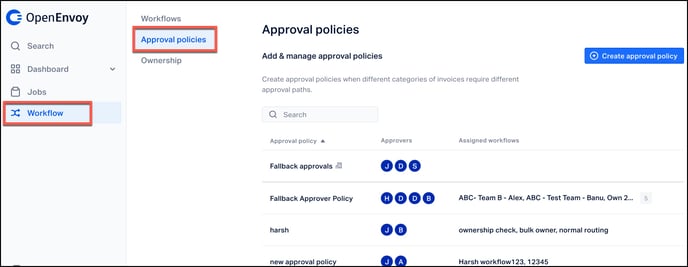
Choose or Create Approval Policies in Context: As an OpenEnvoy user, you have the flexibility to choose an existing approval policy or create a new one in the context of setting up an Ownership workflow (Learn more about setting up Ownership Workflows here).
To create a new approval policy, you can click on ‘Create approval policy’ from the list view:
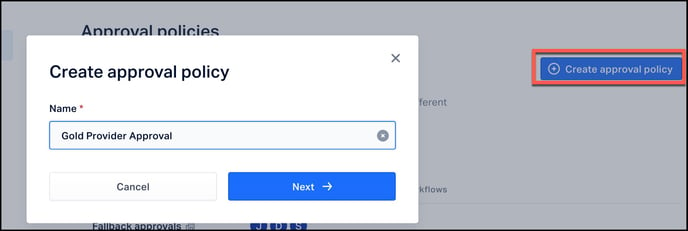
Or within the Ownership Workflow, you can create an approval policy directly within the approval step (step 4):
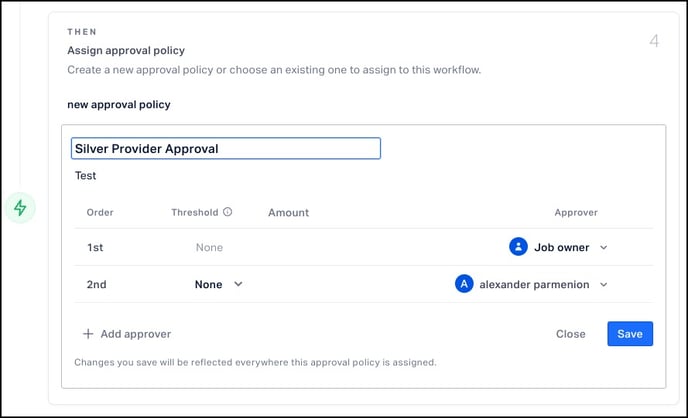
If you already have an approval policy you would like to add when creating a Ownership Workflow, you can select the approval policy you want using the drop down option is step 4:
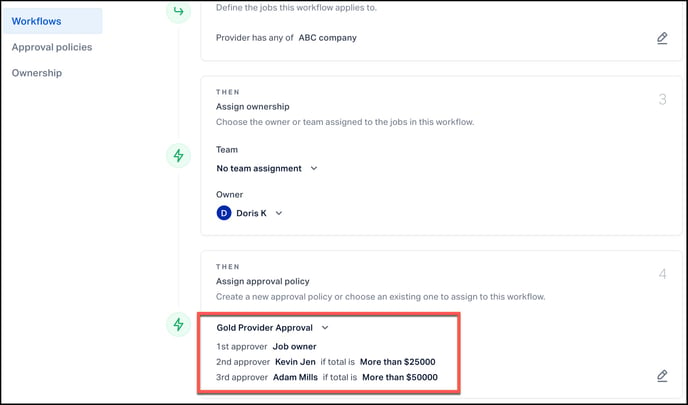
When creating your approval policy, you can set thresholds which trigger certain approvers when the threshold specified in the policy is met. If not threshold is specified, the approver will always need to approve the invoice that meets the Ownership Workflow with them listed on the approval policy:
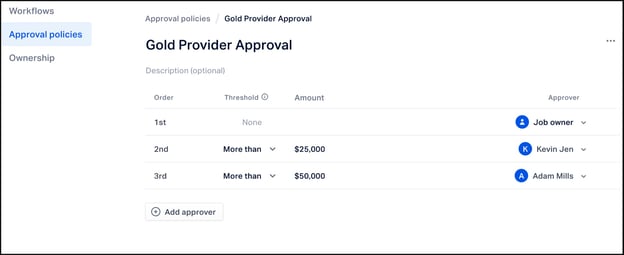
Key Benefits of Approval Policies in OpenEnvoy
Here are the key benefits that approval policies provide in OpenEnvoy:
- Better Visibility and Oversight: Approval policies offer administrators enhanced visibility and oversight. With a clear list view of all policies, administrators can easily manage and track the approval policies in place. This level of visibility ensures that policies are consistently applied across the organization.
- Support for Varied Approver Configurations: OpenEnvoy's approval policies support a variety of approver configurations. Whether it's a specific set of individuals, teams, departments or thresholds, you have the flexibility to create approval chains that align with your organization's unique structure and requirements.
By providing these powerful features, OpenEnvoy empowers you to create, customize, and apply approval policies with ease, streamlining your invoice approval management and ensuring accuracy, compliance, and efficiency.
Once you have approval policies created, learn how to assign them in the ownership workflow which allows you to implement various approval policies based entirely on how you would like your organization to route invoices. Routing can take place based on a number of factors such as vendor, labels, GL accounts or job type. To learn more about Ownership Workflows and how they leverage approval policies, please click here.
